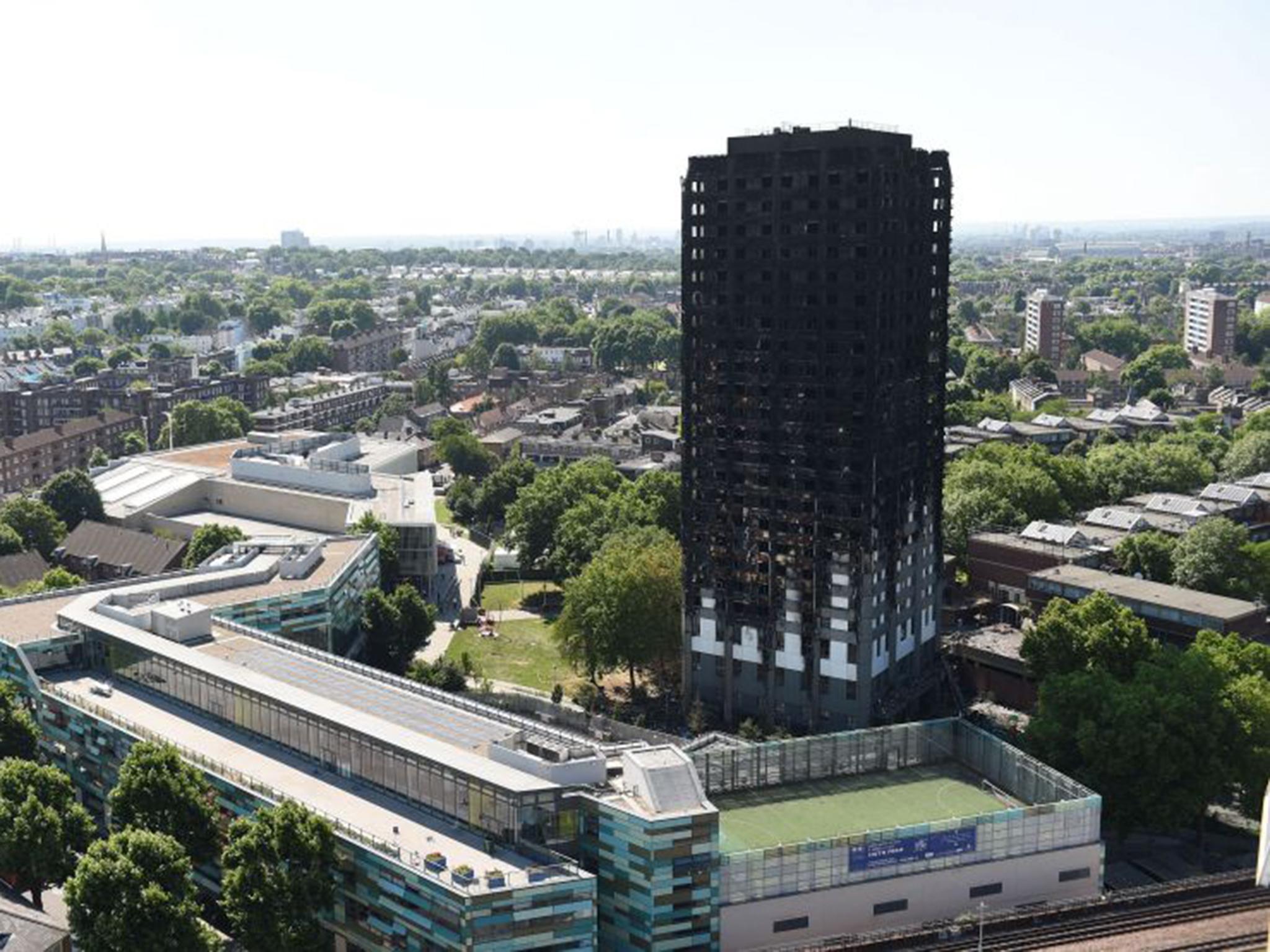Grenfell Tower fire: Combustible cladding used on building still approved for use
Reynobond aluminium panelling still certified as 'safe' despite manufacturer Arconic removing product from market

The cladding used on Grenfell Tower that may have aided the unprecedented spread of last month’s blaze is still approved for use by the building materials board, it has emerged.
Reynobond aluminium panels are still certified by the British Board of Agrément (BBA) as “fit for their intended use provided they are installed, used and maintained as set out in this certification".
The cladding’s approval has not be withdrawn despite manufacturer Arconic removing the panelling from the market due to concerns over its fire safety.
Reynobond was first approved as “fit for purpose” in 2008 and is reviewed every three years, according to The Times.
BBA said it would not review Reynobond again until 2020 “unless the information before us changes”.
Cladding on high-rise buildings has come under forensic scrutiny following the north Kensington fire on 14 June, that killed at least 80 people.
Panelling was installed on the 24-storey high rise during the tower's refurbishment in 2016 to improve the look of the building and provide more insulation.
But the combustible material was thought to have aided the rapid spread of the blaze, causing many residents to become trapped inside their flats.
So far, nationwide cladding testing on social housing blocks has produced a 100 per cent failure rate. A total of 181 high-rise buildings in 51 local authority areas have failed tests, the Government said.
Communities Secretary Sajid Javid revealed the updated number in Parliament, which is expected to rise as more buildings are tested. Up to 600 council-owned blocks have been earmarked for testing.
A statement on the BBA’s website reads: “The BBA along with the rest of the country expresses its deepest sympathy to the families, loved ones and those affected by the tragic loss of life in the Grenfell Tower fire in London on Wednesday 14 June.
“We do not wish to speculate as to the cause of the fire, its spread and the materials involved, but the BBA will fully cooperate with the official investigation and authorities.
“Should readers have concerns about BBA approved products and fire safety, please download the relevant Certificates which are available via this website.”
Niall Rowan, chief operations officer for the Association for Specialist Fire Protection, said building regulations and their enforcement needed urgent reform to create more robust fire safety practices.
“The building regulations’ requirement for external fire spread is that external walls of the building should adequately resist spread of fire over the walls. So if you’re builder you think ‘what does that mean’?,” he told The Independent.
"Enforcement of the regulations is not as good as it could be and that is a big problem in the construction industry. Failure to monitor the quality of construction is a systemic problem.”
Join our commenting forum
Join thought-provoking conversations, follow other Independent readers and see their replies
Comments
Bookmark popover
Removed from bookmarks